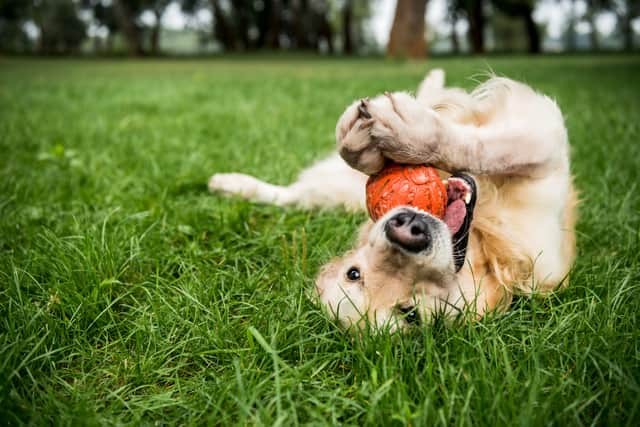Vet’s Easter danger warning to pet owners - how to keep your pets safe this spring
and live on Freeview channel 276
Spring is here, and Easter is just around the corner meaning that homes will be filled with chocolate eggs and cleaning products for the spring clean you can’t resist. Easter is a popular holiday and a brilliant time of year for spending time with family and your furry friends.
However, some of our favourite Easter traditions are not pet friendly. With that in mind, Brendan Clarke, chief veterinary consultant at Bella & Duke has offered some extra tips on how to keep your furry friends safe including which Easter foods and springtime plants they should be avoiding.
Advertisement
Hide AdAdvertisement
Hide AdIt comes after a study found that on average, April sees a 54 per cent increase in dogs being poisoned by chocolate compared to other times of the year, making it the second highest month for claims after the Christmas period.
Brendan Clarke said: “Easter can be such a fun time for the whole family, including our pets too. We all like to treat ourselves to festive treats such as Easter eggs and hot cross buns, but it’s really important we know what’s good and bad for our pets’ health.
“The safest bet is to make sure Easter chocolate is not left in reach of your pets, stick to raw food and natural treats for Easter egg hunts and always be alert when out and about on spring walks.”
So, what are the most dangerous things to look out for this Easter? Here’s everything you need to know.
Top tips for keeping pets safe this Easter
1. Easter eggs and chocolate treats
Advertisement
Hide AdAdvertisement
Hide AdEaster eggs and other chocolate treats are a definite no for pets. Chocolate contains a substance called theobromine which is toxic and really difficult for dogs and cats to metabolise. The level of toxicity depends on the darkness and concentration of the cocoa, so a quality 85% dark chocolate is going to be much more toxic than one milk chocolate M&M but giving any type of chocolate to pets must be avoided.
2. Hot cross buns
Hot cross buns contain dried fruit such as raisins and sultanas, both of which are toxic to dogs and cats and can cause kidney damage. It’s important you ensure these are kept out of reach from your pet as even small quantities can cause a lot of damage.


3. Spring bulbs and flowers
Daffodils, tulips, hyacinths, and amaryllis are all common spring plants that are poisonous to both cats and dogs. They can cause vomiting, diarrhoea, tremors, and other dangerous side effects. It’s always really important to keep an eye on your dog to make sure it’s not eating anything nasty out on walks
Lilies, including Asiatic lilies and daylilies, can be harmful to both dogs and cats, however the consequences are far more severe in cats. The flowers, leaves, pollen (which may easily attach to your cat’s fur and then be mistakenly swallowed through the grooming process) are all deadly. Even the water from a vase holding lilies, if consumed, can be potentially lethal. Make sure if you receive any flower bouquets this spring, that they are well out of reach of your pets.
4. Easter basket fillers and decorations
Advertisement
Hide AdAdvertisement
Hide AdWhen gifting or receiving easter baskets, it can be tempting to let pets play with plastic grass and straw and tissue, but they can be easily swallowed and often lead to digestive issues, resulting in vomiting, bloating and dehydration. Always keep decorations and gifts out of reach and use pet-friendly toys instead.


5. Spring cleaning
If you’re using Easter to tidy up the house with a bit of spring cleaning, Clarke adds that it’s important to remember that many cleaning products can be dangerous to pets. Common household cleaning products such as heavily scented disinfectants, bleach and laundry detergent are toxic and should be kept safely away from pets.
